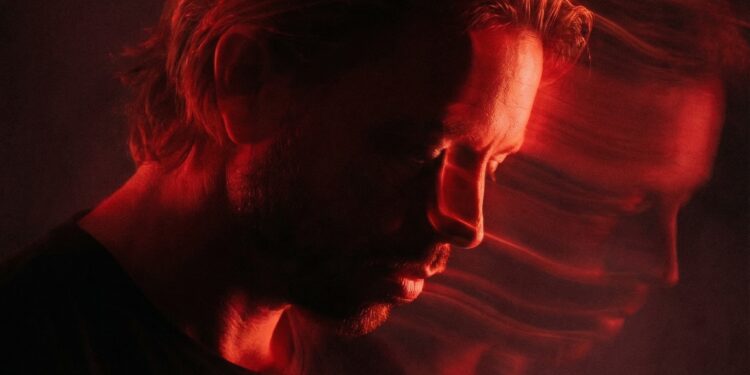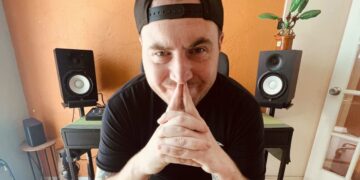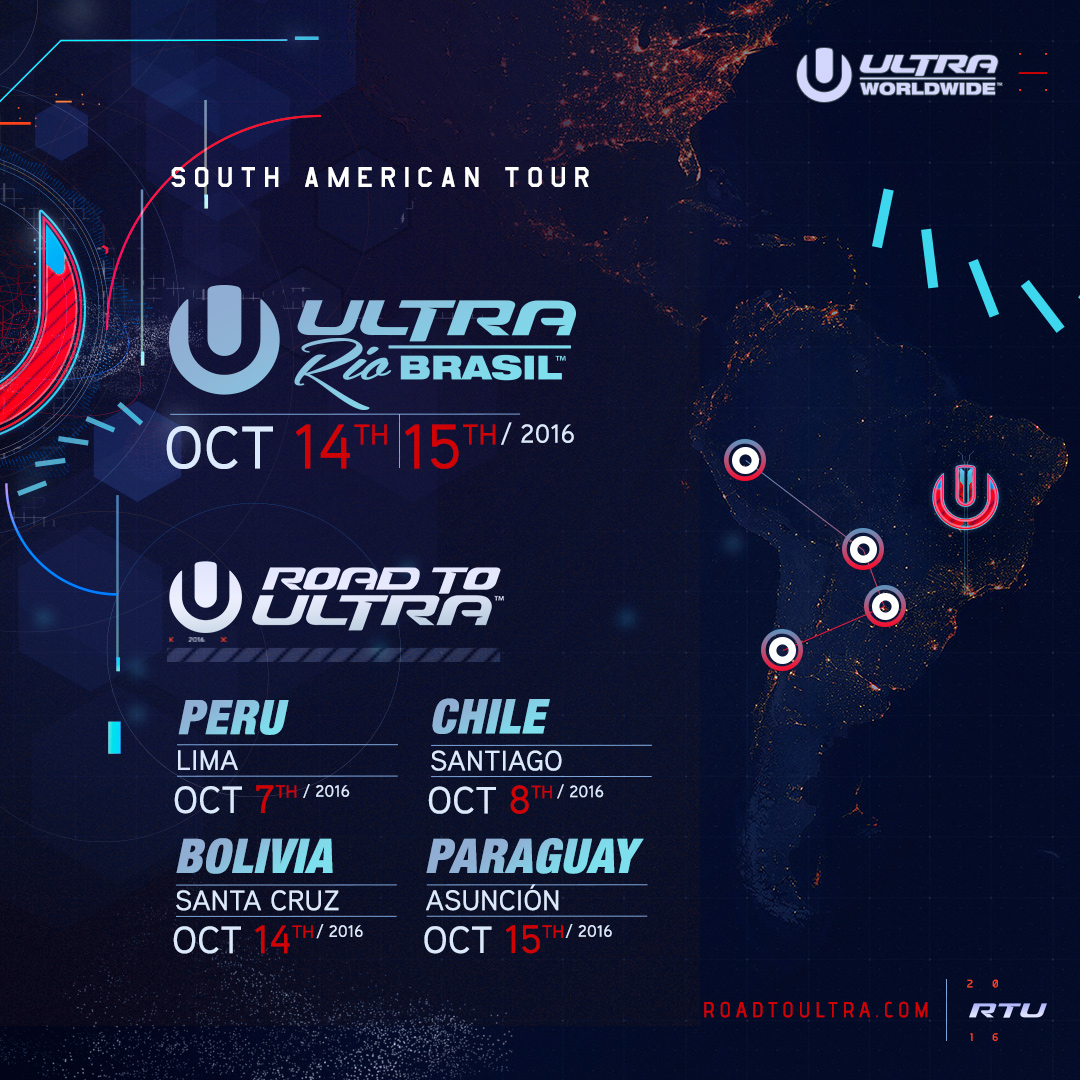John “00” Fleming is a well renowned British DJ who is known to always stay true to himself and his music. We first spoke with him after Fleming & Lawrence’s set at Dreamstate San Francisco and discussed his thoughts on the resurgence of trance. We were fortunate enough to catch up with him again, one week before his open-to-close set with Christopher Lawrence at Avalon Hollywood.
How are you doing today?
Not too bad thank you. Just a busy day and rushing around. I’ve got an early flight tomorrow to New York. It’s my usual life.
Recently on Facebook you posted your entire rundown for the past few days…It was pretty intense!
*laughs* That’s a normal schedule, it’s not one of the mad ones. Going through that lot is my worst nightmare. I’m a proper sleeper and I hate being woken up early. I’m doing the wrong job; I should be a bed tester or something to do with sleeping.
How did you and Christopher Lawrence form Fleming and Lawrence?
I’m in the UK and Christopher is in Los Angeles. We are just old mates from the 90’s and we just had this connection from years ago. It just organically happened; it was never planned to make a duo but the fans were asking for it. We live so far apart but we try to make it work.
How are you able to work together and build that synergy behind the decks that Fleming & Lawrence is known for while both keeping your own personality?
It just organically happens. You’ve got a split between generations. Today’s generation that are DJs are not thoroughbred DJs. They didn’t grow up crate digging and record shopping. They make music and generally play their own music but are kind of playing a concert under the guise of a DJ. Me and Christopher are proper DJs. We have been doing this for many years and we are DJs first as opposed to producers. We have a DJ instinct and this instinct hits you when you’re playing. You read the crowd and know when to go up, down and sideways…you just know what to do.
Musically, we are very close together though we both have our own take on things. If I’m playing and I feel the music needs to go in a particular direction, then Christopher just appears out of nowhere to take over. When you’re off, you don’t talk to people or go and hang out at the bar. You just sit quietly in the zone and watch. When Christopher kinda goes in a particular direction, I stand up and he’s already looking at me. It’s so bizarre but you just know when it’s time to switch and it happens organically.
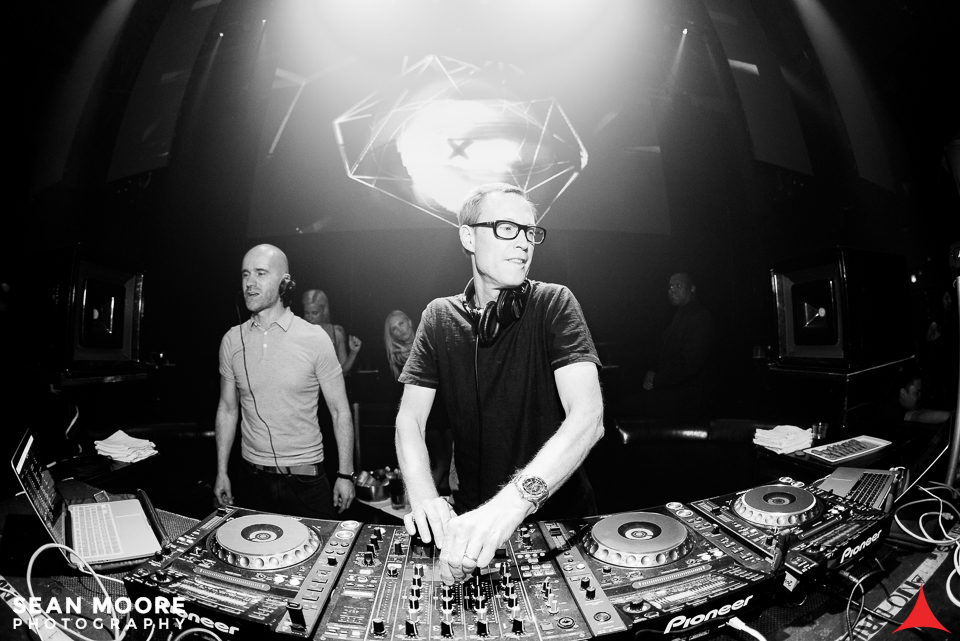
It’s more than just playing music. You have a feel for the sound and timing, as well as an ability to make the night flow in a particular direction. Is that correct?
Completely. We are doing an open-to-close at Avalon and we do plenty around the world. When it’s 8 hours, it’s not like one of us is resting while the other is on. I can’t talk to people. I feel rude when they try to talk to me but I’m still in that zone. You have to follow that dance floor for that full 8 hours. You can’t lose your concentration otherwise you lose your flow of the journey and I lose where Christopher has gone for the last half hour. I need to keep in sync with what he’s doing. It’s quite draining; it’s really really tiring.
How would you describe one of your open-to-close sets for someone who hasn’t experienced one?
It’s just a full musical experience. You start off with chill-out music and breaks and the bpm slowly goes up over 8 hours. It’s like listening to 8 different DJs but it’s all in one hit. The clubs always make a comment that they’re not used to the crowds being busy and staying until the very end. Usually after the headliner or the peak moment has happened, the crowd starts thinning out and going home. When the crowd is feeling tired, our job as DJs is to hook them back in; we give them that musical break, we chill them out, and they feel that energy come back again. Then, we punch them again. It’s an audio version of a thriller. You’re on the edge of your seat and you have no idea how where the movie is going but you have to find out how it’s going to end. There are twists and turns and it’s a thrill. Our show is an audio version of that. Getting people to stay is the challenge but that’s why you have to stay fully in sync with the dance floor.
We reconnected with John 00 Fleming after he landed in New York. Now you’re in New York and getting ready for Dreamstate, correct?
Yes, I secretly popped down there last night and had a look at it…it looks really good. I’ve done it before on the west coast but it’s good to see they brought everything over to the east coast. They didn’t scrimp and save or anything, they did the full show.
Do you have any pre-show rituals?
No, not at all. I don’t do anything special. I just get there an hour early and I go and hide somewhere out of the way and analyze what the crowd is doing and get a feel for the dance floor.
What are your thoughts on psytrance becoming more well known (and emulated) in the mainstream dance world?
I think it’s an organic thing. The two worlds have always been connected but disconnected. They both share the same wording, “trance,” but are just two completely separate things. It was called Goa trance before and it became too commercial and everyone rebelled, as the psytrance scene does, and it resurfaced and became psytrance. There’s no hiding the fact, as I have been very vocal about it, but I think the regular trance world is stuck and became very commercial. EDM infected this world and there’s a lot of confusion as to what trance really is. I’m not the only one to be vocal about this. It’s a natural organic thing as some people have gotten tired of that trance sound and are looking for something new.
Psytrance is split into two. You’ve got the real underground psytrance world which the trance world won’t understand. Then there’s this split with the melodies and the classic parts from the regular trance world but with the psytrance undertone and that’s what the trance world is really getting a hit from. It has the driving beat but also the musical melodic moments. The regular trance world has become too pop and sounds like pop songs. It sounds dated like it’s been stuck for a decade. I hear some of those trance tracks and they sound dated before they are even released. They are using the same format for over a decade now. I can understand why they got tired and why I got tired.
You mentioned that there’s another side of psytrance that you feel trance fans would not like or would not understand. What do you mean?
It’s not just with psytrance. You get this with all genre worlds. You’ve always got a cult underground movement and passionate people that love the scene. It’s like myself. I don’t like fads or flavors that are happening in the music world. I’m always two steps ahead. It bores me If I carry on doing that same thing. The underground scene creates what’s going to happen tomorrow and they experiment and try new things. That’s what’s currently going on in the psytrance world. They are saying that this current form is becoming very popular and a lot of people are into it but we want to carry on experimenting. That’s what they are doing at the moment. I’m seeing this underground world creating this new sound and I get a big hit from it. That’s what I’m known for as a DJ, and I speak for Christopher as well. We are known for that and that is why people come to see us. Some other guys, let’s say the more commercial guys, you know what you’re going to get. You can write it out before they even play, but that’s what some people like as well. They know when I step out, they are going to hear an hour and a half to two hours of music they have never heard before but they like that unknown journey.
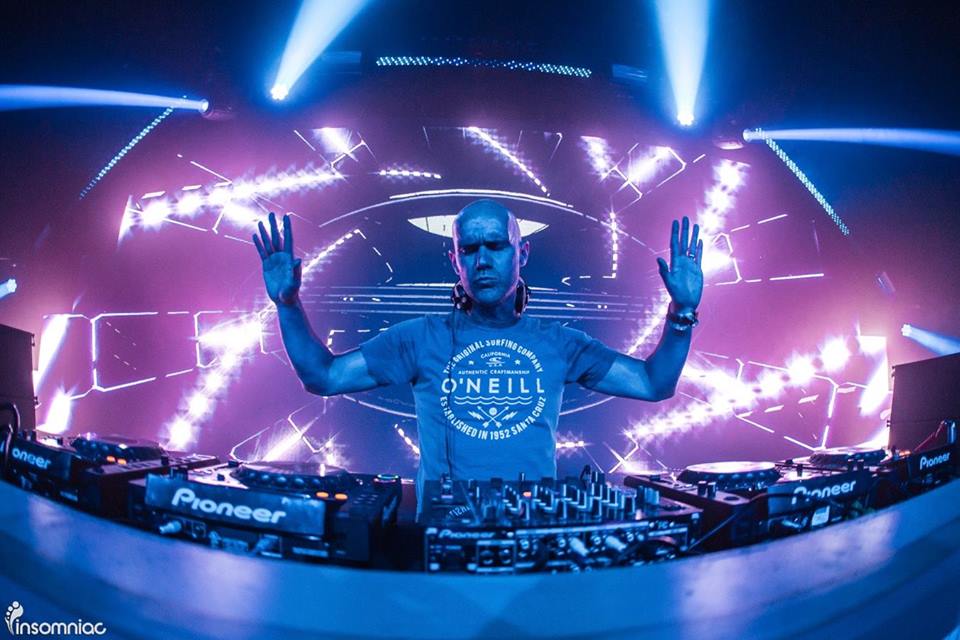
Yes, I’ve noticed that a lot of your sets are ID after ID. It’s great because it makes it so that each one of your sets is different, fresh and exciting.
It’s that movie analogy, those twists and turns, that’s what they are enjoying on the dance floor. Whereas, say Markus Schulz played last night, they know they’re going to get a gold ole sing a long to all the tracks they know from him. I saw that yesterday when he was playing. Everyone in the crowd had their eyes closed, when the melodies came out they were doing the arm movements to go with the melodies and they get a big hit from that. I suppose that’s more like a concert performance. You have visuals, singers and all that kind of stuff but it’s a concert and we all enjoy concerts as well. I’m not one of those purists with a narrow pallet, that frowns on anything to do with the commercial world.
You were very candid and genuine in your video about how much pressure there is to create #1 tracks and succumb to “fads.” How do you stay grounded and true to yourself in the current scene?
I just am myself. It wasn’t that I never ever get drawn to that mentality of making #1 hits. There’s the pressure that if you don’t have a track in the charts, that people are going to overlook you and promoters won’t book you. A lot of promoters came forward and thanked me for that video and said, they don’t book from that chart. They said they realize that if they book someone in the top 10 and they come to play at the club, the artist doesn’t actually have fans and promoters end up losing money. I put the video out to let people know that I am honest and you don’t have to have a #1 hit just to get bookings. I just wanted to share that experience that I’ve had.
When speaking to fellow colleagues, especially those that run record labels, it’s those tracks that are dynamic and different that are the ones that stand out. Can you imagine the demos that come in? We get hundreds per day, at least. There are so many generic tracks in there that your mind goes numb, then suddenly there’s a completely dynamically different take and everyone’s ears perk up and everyone gathers around and plays it loudly. The personality of the artist is coming though and it’s because they are thinking differently. Quite often with those generic demos, you speak to those people and they don’t like that sound; they’ve just done it thinking that it’s a part of the process to go through to get known.
It sounds pretty simple, but often people don’t stay true to themselves and their sound. Why do you think that is?
I think it’s due to the changing music industry. Years ago there used to be a lot of money in the music industry especially in the sales of tracks. You could release a track and earn a full time living to support your family. That doesn’t exist today. Within that old set-up, record labels and everything to do with the music industry could afford to pay staff like an A&R team and agents and managers. There just isn’t that guidance anymore. That whole process is missing. Managers used to find talent before the artist even released a track then guide the artist through the whole process. Today, artists are just sitting in their bedrooms making music and they are putting it out there and all they are doing is copying what they think is the music industry by looking at what is going on out there. For example, when DJ Mag 100 was on top, they would think “I need to get on that poll,” then “I need to get thousands of You-Tube hits,” and that was happening and now there’s a Beatport fascination. It’s a shame that labels can’t take every person personally and guide them, but there isn’t time. Fans think that when artists release a track, the artist is earning thousands but really it’s a few dollars. Streaming will take over but it will be a good 10 years before anyone makes a decent living from streaming.
In the pop world, an artist releases an album, then they tour for the album and they are finished. In the electronic world, it seems as though artists are consistently releasing tracks and consistently touring. Do you think the constant demand for more music in the electronic world leads to a lot of quantity but depreciating quality?
When you look at the pop world, you also see a lot of money as well. Before pop artists made money strictly on sales, but now a manger will sign them up with a whole process of things such as TV and radio appearances. They get paid to go all over the world to do these appearances on morning TV etc. and promote their albums. But the guy sitting in his bedroom, yes, has a romantic idea that he is going to make a big track and go on a worldwide tour but no, it doesn’t happen like that. No offense, but why would a promoter pay for your flight and fees if you can’t pull anyone into his club. The reality is that you have to build a fan base and it takes years to do that and often you need guidance to do that. There are some people who are well established, I won’t mention any names, that can’t get the marketing part and the social media part right. Sadly, even if you are making great music if you can’t figure out how to build your social media or your fan base you may not get gigs. The process is very complicated and frustrating. It’s not just about making music.
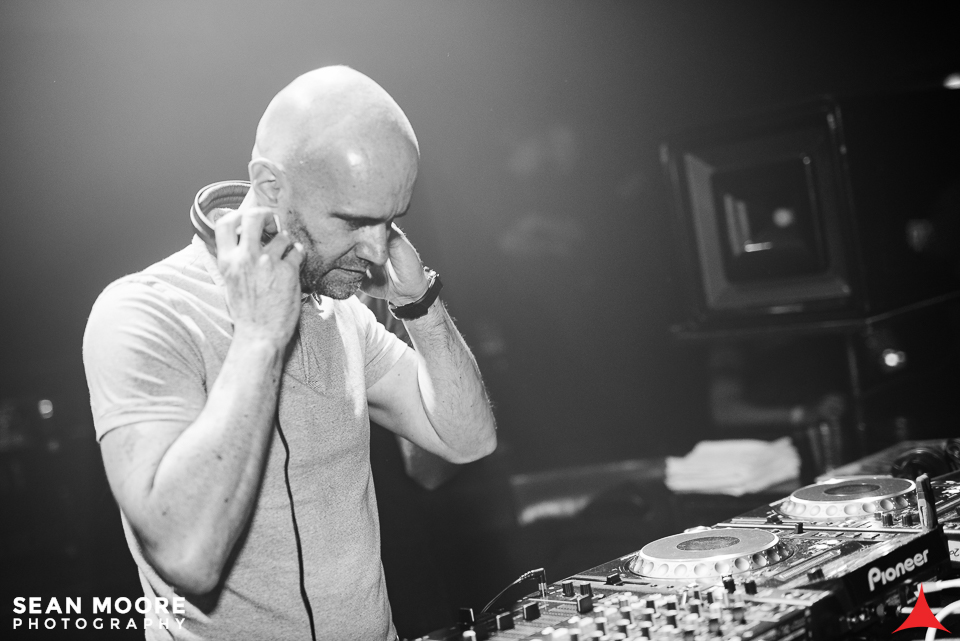
I agree! Before, being a DJ meant curating and playing music. Now, you have to be good at marketing and branding yourself, setting up social media, upload sets or updating SoundCloud and other mediums. There seems to be more to manage now. How do you feel social media has affected your job?
To be honest, I hate it. All I want to do is make music but you find a big chunk of your time is doing social media. It wasn’t until the last few years that I really felt comfortable doing it. I’m a very shy person and social media feels like you’re uncomfortably showing off to the world and I’m not that type of person. I hate it, but I understand that for the next generation, that’s their world. It’s what I said earlier, you can be the greatest producer in the world but you may not take off because your social media platforms look awful. Your social media is like your shop-front. It’s the public perception that people get and what hooks them. We are losing some of the greatest producers because of problems like this because they don’t understand the mechanics and the business end of the music industry.
You’re a DJ but you also head your own labels JOOF Recording, JOOF Mantra and JOOF Aura. What different things do you have to take into consideration when you’re working on the label end?
I think every label is different so I can only talk about what I do with my labels. It’s finding those dynamically different tracks and uncovering that talent that is trying desperately hard but needs nurturance and guidance. We could sign a lot of well known artists but I’ve never been about that. I like finding and uncovering that new great music or a well-known artist who wants to uncover their true style.
A recent article was published about the dark side of the being a DJ highlighting loneliness, long hours in airports, the difficulty maintaining relationships, among other problems. What do you think are the darker sides of the business, and how do you deal with them?
The traveling is really exhausting. I’ve been doing this for nearly 30 years now and it’s been the norm to jump on the plane, spending the weekend halfway around the world and then come home. Luckily, I’ve listened to myself and leave business for when I am feeling better. People think we go to these cities and go sightseeing and eat at wonderful restaurants and that’s not it at all. You get there, you grab what sleep you can at the hotel, then you’re up all night, and then you have an early start and a flight to the next city then you get home. We do want to get home too. We have families and live studios back at home so we get the first flight back and it’s just tiring. It takes its toll on you. I just want to keep myself in a happy place. I just walk away from it if I don’t like it. Luckily, there aren’t too many dark sides outside of the traveling and the tiredness.
Who are some artists, electronic or otherwise, that you’re currently listening to?
In my personal time I generally avoid any form of dance music. The reason is to rest my head and my ears. If I’ve been working in the studio, listening to tracks all day and DJing all weekend…I need to rest my head. As soon as I hear any dance tune, I think “What program did they use? How did they engineer this? What drum machine did they use?” I’m back in work mode. I can’t relax so I have to take myself to something else. I like electronic version of classical music, like chill down tempo. Somehow, my brain doesn’t try to analyze it because I don’t make or want to make chill out music. I’ve been vocal about Trifonic. I’m a big fan of his work. If you search within that world, that’s what I love.
Let’s end with something different. What’s your favorite flavor of ice cream or favorite dessert?
I’m not a fan of ice cream. I love jam roly poly and custard. That’s for all the Americans to get Google-ing. It’s difficult to explain but it’s made from suet. Spotted dick is a different version that people have heard of. I should have put on loads of weight by now as that’s my favorite dessert.
If you’re in Los Angeles this Labor Day Weekend, I highly suggest attending Fleming & Lawrence’s 8 hour set! More information can be found HERE.
Follow John “00” Fleming on Social Media:
Website | Facebook | Twitter | SoundCloud | Instagram



